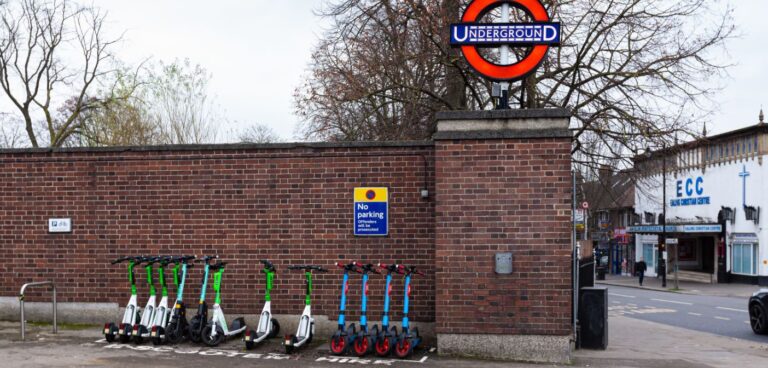Transport for London (TfL) and London Councils have extended the UK capital’s trial of rental e-scooters from 06 June until 20 November this year to further explore how micromobility could play a role in a sustainable transport network.
Since it launched in June 2021, London’s trial has expanded to include 10 boroughs, with more than 500 designated parking locations and 4,100 e-scooter vehicles now involved.
In that time, more than one million journeys have been made across the three operators taking part in the trial – Dott, Lime and TIER, covering a total of more than 2.5 million kilometres, with April 2022 the busiest month so far.
Helen Sharp, TfL’s e-scooter trial lead, said: “E-scooters could play an important role in ensuring a green and sustainable future for London and we’re really pleased to be able to extend the e-scooter trial to November.
“We’re working closely with operators, councils and people across London to build on the success of the trial so far and we’re pleased that people will continue to benefit until the autumn.”
Updated Department for Transport guidance allows existing e-scooter trials in the UK to be extended until November 2022, enabling local authorities to continue to test the vehicles in a safe and legal way.
Earlier this month, the UK government announced that the Transport Bill would introduce a new category of low-speed, zero-emission vehicles, which could include e-scooters, and ensure they are regulated, safe and licensed.
Anonymised data from London’s rental scheme is being used to assess how micromobility could contribute to transport in the capital and the extension of the rental trial will enable TfL and London Councils to learn more about the new vehicle category before any new legislation comes into force.
In a joint statement, Dott, Lime and Tier said: “We are delighted to be extending our successful London e-scooter pilot in collaboration with TfL and London Councils.
“Data from the first 12 months of use in London shows that e-scooters can be introduced safely here, offering residents and visitors a new sustainable way to travel around the capital.
“We look forward to continuing our service over the summer, with even more Londoners set to try out our scooters in the warm weather.”
Rental e-scooters in London are required to meet safety standards that go beyond national standards, including a speed limit of 12.5mph, larger wheels and lights that are always on throughout any rental.
Operators have warned or banned more than 200 people for dangerous behaviour to date, and private e-scooters remain illegal for use on roads and cycle lanes.
Furthermore, Dott, Lime and Tier are collaborating with University College London’s research facility Pearl to develop a standardised sound for rental e-scooters.
The approach could improve safety across the industry by helping people, in particular those with visual impairments, identify rental e-scooters.
Research is expected to produce a sound that can be tested by operators in London this year, attaining an industry standard and ultimately aiming to scale up to other cities in the UK.





